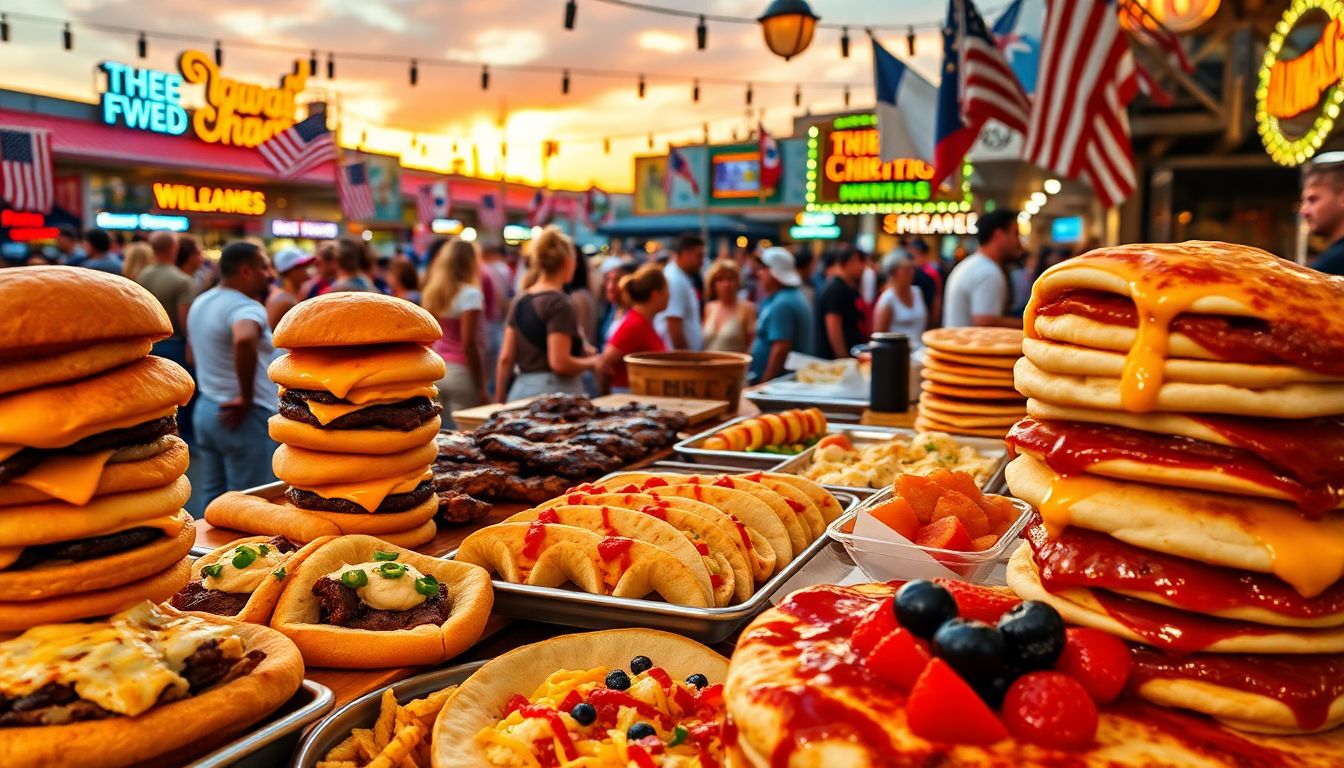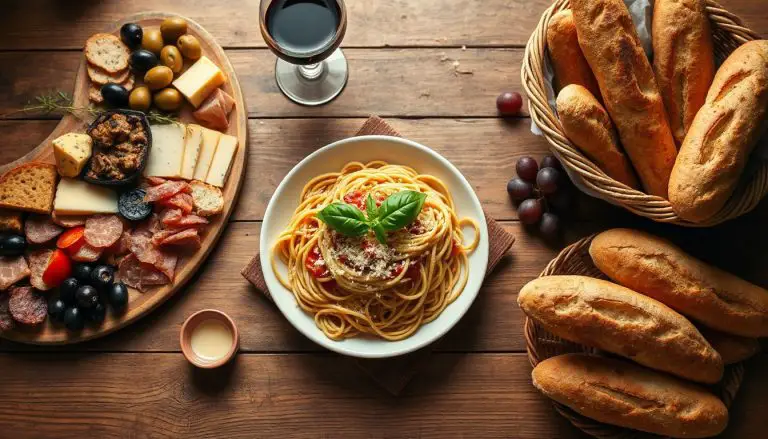Discover the Most Famous Foods in America: A Culinary Journey Through American Cuisine

Introduction
American food is a mosaic of flavors, styles, and stories. It reflects the country’s rich mix of cultures, regional traditions, and ever-changing trends. From quick bites to hearty dishes, these foods have become symbols of American identity. Did you know that American fast-food chains serve millions worldwide each day? This shows just how much U.S. cuisine influences global eating habits and tastes.
The Classics of American Fast Food
Origins and Evolution of Iconic Fast Food Items
Fast food isn’t just about convenience, it’s about tradition. The hamburger was born in the early 1900s, with stories claiming its origin in Hamburg, Germany. Fries came from Belgium, and hot dogs gained fame at American baseball games. Over time, chains like McDonald’s and KFC made these foods household names. Today, fast food is a global phenomenon, with these dishes being enjoyed by people from Tokyo to Toronto.
Popular Fast Food Chains and Their Significance
McDonald’s, KFC, Subway, and Burger King have transformed how Americans eat. These giants changed dining from a sit-down to a grab-and-go experience. Fast food now accounts for nearly 50% of all meals consumed in the U.S. It’s become part of everyday life, shaping social habits and even pop culture.
Cultural Impact of Fast Food in America
Fast food is more than burgers and fries—it’s a symbol of American hustle. It’s linked to the fast-paced lifestyle many Americans lead. But health concerns have led to reform. Many chains now offer healthier options, like salads and grilled items, showing how the industry adapts to changing demands.
Traditional American Dishes That Define the Nation
Regional American Cuisines and Their Signature Dishes
Every part of America has its special foods. In the South, fried chicken, biscuits, and barbecue reign supreme, often cooked over wood for smoky flavor. New England boasts clam chowder and lobster rolls, symbolizing its seaside roots. Meanwhile, Midwestern comfort food includes casseroles, hotdish, and bratwurst, hearty meals for cold winters.
Celebratory and Holiday Foods
Thanksgiving turkey, pumpkin pie, and cranberry sauce are staples during American holidays. These dishes have deep roots in history and tradition. They bring families together and symbolize gratitude, community, and history.
Modern Twists on Classic Dishes
Chefs are remixing old favorites with new flavors. For example, some restaurants serve buffalo cauliflower instead of wings or use quinoa in burgers. Food innovators blend tradition with modern tastes, keeping American cuisine fresh and exciting.
Iconic American Foods with Global Influence
The Rise of American Cuisine on the World Stage
Americans have shared their foods worldwide. The burger, fries, and apple pie symbolize American comfort. These dishes are found across continents, often adapted to local tastes—spicy jalapeño burgers or sweet potato fries, anyone?
American Food Products Exported Worldwide
Products like peanut butter, Kraft Mac & Cheese, and beef jerky are favorites outside the U.S. The export value of American food items grew by 4% last year alone, showing their popularity. These staples symbolize American flavor and convenience abroad.
Cultural Symbols in American Food
The burger is more than a sandwich; it represents American innovation and global influence. Fast food chains attract millions of tourists looking for a taste of America. When travelers visit New York or Los Angeles, grabbing a burger becomes part of the experience.
Unique Regional Specialties and Local Favorites
Notable Regional Foods and Their Origins
Louisiana’s Cajun and Creole dishes like gumbo and jambalaya come from French and African roots. Texas’ Tex-Mex combines Mexican flavors with American ingredients, creating dishes like fajitas and chili. The Pacific Northwest is famous for seafood like salmon and Dungeness crab, straight from the coast.
Impact of Migration and Cultural Diversity
Immigrants brought their food traditions here, enriching regional cuisines. For example, Italian immigrants influenced Chicago’s deep-dish pizza, while Chinese communities popularized dim sum in California. These influences lead to exciting fusion dishes that reflect America’s melting pot.
Food Festivals Celebrating Local Foods
Festivals like Mardi Gras in New Orleans highlight regional specialties with music, parades, and food. Alaska Salmon Festival celebrates the fish that fuels the state’s economy. These events help preserve local flavors and traditions, making them a must-visit for food lovers.
Food Trends Shaping America Today
Sustainable and Organic Food Movements
Farm-to-table restaurants and organic markets are booming. Consumers care about food origins and environmental impact. Last year, organic food sales grew by 12%, indicating a shift toward healthier, eco-friendly eating habits.
Plant-Based and Vegetarian Options
Vegan and vegetarian eateries are popping up everywhere. Plant-based foods like Beyond Burgers and cauliflower wings are gaining popularity, offering healthier options without sacrificing flavor. Many Americans see plant-based diets as better for health and the planet.
Technology and Innovation in American Food Culture
Apps like Uber Eats and DoorDash make food delivery faster than ever. Smart kitchens with AI assistants and robotic chefs are on the horizon. These advances promise even more variety and convenience in American dining in the near future.
Conclusion
American cuisine is a delicious story of diversity and constant innovation. From fast-food staples to regional delights, these dishes embody the country’s history, culture, and creativity. Whether you’re exploring local farmers’ markets or traveling abroad, tasting American foods offers a glimpse into its vibrant spirit. So next time you’re hungry, think about trying a classic burger, some spicy cajun, or a sweet pumpkin pie. The flavors of America are ready for you to discover and enjoy.







